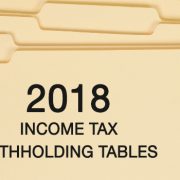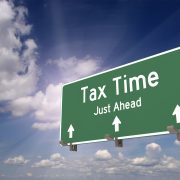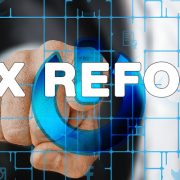The Woes Of The Cannabis Industry
/0 Comments/in Marijuana Tax Planning & Marijuana Tax Defense/by Tax AttorneyBanks won’t touch you, IRS just wants to tax you and the Feds want to close you down – despite California legalizing marijuana, these are the challenges marijuana businesses face everyday.
Medical marijuana is now legal in 29 states plus the District Of Columbia and recreational marijuana is legal in 8 states plus the District Of Columbia. Just in California alone with the change in law allowing both medical and recreational marijuana, the marijuana industry in California is expected to be a $3.7 billion market in 2018 and could rise to $5.1 billion in 2019 according to the cannabis industry research firm BDS Analytics. However, under Federal law marijuana is designated as a Schedule I controlled substance and therefore is illegal under Federal law.
Banks Won’t Touch You
While states are opening their markets to marijuana, the illegality under Federal law still restricts cannabis businesses access to banking channels. However, guidance issued by the Financial Crimes Enforcement Network (“FinCEN”) on February 14, 2014 (FIN-2014-G001) clarified how financial institutions can provide services to marijuana-related businesses consistent with their Bank Secrecy Act (“BSA”) obligations, and aligned the information provided by financial institutions in BSA reports with federal and state law enforcement priorities. Whilethis FinCEN guidance (which has yet to be revoked or changed)should enhance the availability of financial services for, and the financial transparency of, marijuana-related businesses, banks being conservative by nature are still overwhelmingly reluctant to provide banking services to this industry.
IRS Just Wants To Tax You
Generally, businesses can deduct ordinary and necessary business expenses under I.R.C. §162. This includes wages, rent, supplies, etc. However, in 1982 Congress added I.R.C. §280E. Under §280E, taxpayers cannot deduct any amount for a trade or business where the trade or business consists of trafficking in controlled substances…which is prohibited by Federal law. Marijuana, including medical marijuana, is a controlled substance. What this means is that dispensaries and other businesses trafficking in marijuana have to report all of their income and cannot deduct rent, wages, and other expenses, making their marginal tax rate substantially higher than most other businesses.
Feds Want To Close You Down
The Cole Memo which came out of the Department Of Justice (“DOJ”) under the Obama administration in 2013, directed U.S. Attorneys to use discretion to prioritize certain types of violations in prosecuting cannabis operators, but, strictly speaking, it did not make operations in cannabis legal.
The Cole Memo included eight factors for prosecutors to look at in deciding whether to charge a medical marijuana business with violating the Federal law:
- Does the business allow minors to gain access to marijuana?
- Is revenue from the business funding criminal activities or gangs?
- Is the marijuana being diverted to other states?
- Is the legitimate medical marijuana business being used as a cover or pretext for the traffic of other drugs or other criminal enterprises?
- Are violence or firearms being used in the cultivation and distribution of marijuana?
- Does the business contribute to drugged driving or other adverse public health issues?
- Is marijuana being grown on public lands or in a way that jeopardizes the environment or public safety?
- Is marijuana being used on federal property?
But now that as of January 4, 2018 Attorney General Jeff Sessions rescinded the Cole Memo, federal prosecutors in cannabis legal states will now be free to decide how aggressively they wish to enforce federal marijuana laws.
What Should You Do?
Level the playing field and gain the upper hand by engaging the tax attorneys at the Law Offices Of Jeffrey B. Kahn, P.C. located in Orange County (Irvine), Los Angeles County (Long Beach) and other California locations. We can come up with solutions and strategies to these challenges and protect you and your business to maximize your net profits.
Running Out Of Time? Extension Available For January 31st Filing Deadline For Businesses To File All W-2’s And 1099’s
/0 Comments/in IRS Operations & Procedures/by Tax AttorneyTo expedite IRS’ ability to match up W-2’s and 1099’s reported by businesses to the income reported on taxpayers’ tax returns, all these forms must be submitted to IRS and given to taxpayers no later than January 31st. This filing deadline was made uniform under The Protecting Americans from Tax Hikes (PATH) Act. Prior law required that only W-2’s had to be provided to employees no later than January 31st with all other reporting forms (including the copies to IRS) due by the end of February. Failure to file these forms correctly and timely may result in penalties to the employer or payor.
30-Day Extension To File Is Available
An automatic extension is 30 days from the original filing due date of January 31, 2018 by submitting Form 8809, Application for Extension of Time To File Information Returns. If you receive an automatic extension, you may request one additional extension of not more than 30 days by submitting a second Form 8809 before the end of the first extension period but only one extension of time to file Form W-2 is available. Requests for additional extensions of time to file information returns, and requests for extensions of time to file Form W-2, are not automatically granted. Such requests are granted only if you meet one of the following criteria: (1) The business suffered a catastrophic event in a Presidentially Declared Disaster Area that made the business unable to resume operations or made necessary records unavailable; (2) Fire, casualty, or natural disaster affected the operation of the business; (3) Death, serious illness, or unavoidable absence of the individual responsible for filing the information returns affected the operation of the business; or (4) The business was in its first year of establishment. Failing to file timely will result in the IRS assessing hefty penalties against the employer/payor.
Extension Does Not Effect Deadline For Distributing Statements To Employees/Recipients
The extension of time to file and any approved requests for additional time will only extend the due date for filing the information returns with the IRS. They do not extend the January 31, 2018 due date for furnishing statements to recipients.
Earlier Date Means More IRS Audit Notices Issued Sooner
According to IRS estimates, in a calendar year employers, businesses, financial institutions, credit card companies and other third party payers will file 2.3 billion information statements. These information statements report income and financial transactions, and can help individuals and businesses prepare accurate tax returns. Using information-matching programs, the IRS compares third-party information statements with taxpayer data, and sends a notice to taxpayers when IRS systems detect inconsistencies.
Individual Automated Underreporter (AUR) Program
This matching program is better known by its primary notice: CP2000, Notice of Proposed Adjustment for Underpayment/Overpayment. IRS systems automatically send this notice when items reported on Form 1040, U.S. Individual Income Tax Return, don’t match information reported to the IRS by employers and other payers. The first round of these notices arrives just after Thanksgiving, and the second round arrives toward the end of the next year’s filing season.
The CP2000 notice has been a mainstay of IRS information reporting for decades. In 2012, the IRS issued more than 4.5 million CP2000 notices, with an average of $1,572 in additional taxes owed.
Form 1099-K merchant card transaction matching program
In 2012, the IRS started receiving from credit card companies, Forms 1099-K, Payment Card and Third Party Network Transactions. With merchant card transactions now being reported to IRS, the IRS quickly began using this information to match against business returns. However, because businesses do not specifically report merchant card transactions as separate line items on business tax returns, the IRS can only infer potential underreporting. For example, if a business has a disproportionate amount of cash to credit/debit card sales, based on its line of business, the IRS may look closer. These kinds of mismatches have led the IRS to develop compliance initiatives, including “soft” notices requesting explanation and mail audits requesting documentation.
The IRS has established a Form 1099-K matching initiative that makes the IRS more efficient in identifying problem tax returns especially where merchant card payments appear to make up the majority or even exceed the total business receipts reported on the return. In these cases, the IRS perceives that the business is underreporting cash sales due to the disproportionate share of merchant card payments. Accrual-basis taxpayers and e-commerce businesses whose receipts do not neatly match merchant card transactions are likely early targets in this program and we have had our share of these cases where that is what happened.
Automated Substitute For Return Program
When a taxpayer does not file and the IRS has information statements indicating a filing requirement, the IRS uses the data to file a return on behalf of the taxpayer if there is a projected balance owed. In 2012, the IRS used information statements to file 803,000 returns for taxpayers, totaling $6.7 billion in additional taxes owed. And the sad thing about this is in just about every case, the amount actually owed when a tax return is filed by the taxpayer is much lower than what the IRS says a non-filer taxpayer owes. We even had cases where the IRS ended up owing our clients money.
The Stakes Are High!
A recent U.S. Government Accountability Office study showed that the IRS spends $267 million on underreporter matching programs, compared with the $4.2 billion it spends on audits. But automated information-matching programs return almost six times more revenue than audits. You can see why with fewer IRS agents and reduced budgets, the IRS will increasingly rely on technology-driven matching programs to bring in more tax dollars.
What Should You Do?
So if you receive one of these audit notices it is important that you don’t ignore it. Protect yourself from excessive fines and possible jail time. Let the tax attorneys of the Law Offices Of Jeffrey B. Kahn, P.C. located in Orange County (Irvine), San Diego County (Carlsbad) and elsewhere in California defend you from the IRS.
New Mileage Rates Announced By IRS for 2018
/1 Comment/in IRS Operations & Procedures/by Tax AttorneyBefore the 2017 Tax Cuts And Jobs Act was enacted into law, the IRS published the mileage rates to be used for travel in 2018. For many taxpayers this was a significant tax deduction but the 2017 Tax Cuts And Jobs Act changes that.
Why fewer taxpayers will be itemizing:
Increase Of Standard Deduction – A substantial increase to $12,000 for single filers (was $6,500), $18,000 for heads of household (was $9,550), and $24,000 for joint filers (was $13,000).
Limit On Deduction For State And Local Taxes – A taxpayer may claim an itemized deduction of only up to $10,000 ($5,000 for a married taxpayer filing a separate return) in (i) personal state and local property taxes, and (ii) state and local income taxes (or sales taxes in lieu of income taxes). Taxes paid or accrued in carrying on a trade or business are not subject to this limitation.
Limit On Deduction Of Mortgage Interest – For mortgages incurred after December 31, 2017, taxpayers may deduct interest on up to $750,000 of principal (mortgages existing before January 1, 2018 are still subject to the pre-existing law’s $1 million limit). But for all taxpayers there is no longer a deduction for interest paid on home equity loans.
Elimination Of Miscellaneous Itemized Deductions And Deduction For Moving Expenses – A taxpayer can no longer deduct miscellaneous itemized deductions which include unreimbursed employee expenses and tax preparation costs. Also the deduction for moving expenses is gone.
But for those who can benefit from itemizing, here are the rates for 2018:
Standard Business Mileage – The standard business mileage rate increased by 1 cent to 54.5 cents per mile.
Medical And Moving Mileage – The medical and moving mileage rates also increased by 1 cent to 18 cents per mile.
Charitable Mileage – Charitable mileage rates remained unchanged at 14 cents per mile.
Time Limits For Keeping Your Tax Records
Even though your 2017 income tax return is processed by the IRS and a refund is issued, that does not mean the IRS can later question or audit the tax return, In fact the Statute Of Limitations allows the IRS three years to go back and audit your tax return. That is why it’s a good idea to keep copies of your prior-year tax returns and supporting backup documentation for at least three years. In the case of backing of any deductible mileage, you will need to retain your travel log showing the distance traveled, who you visited and the purpose of the visit.
What Should You Do?
You know that at the Law Offices Of Jeffrey B. Kahn, P.C. we are always thinking of ways that our clients can save on taxes. If you are selected for an audit, stand up to the IRS by getting representation. Tax problems are usually a serious matter and must be handled appropriately so it’s important to that you’ve hired the best lawyer for your particular situation. The tax attorneys at the Law Offices Of Jeffrey B. Kahn, P.C. located in Orange County (Irvine), Inland Empire (Ontario) and elsewhere in California are highly skilled in handling tax matters and can effectively represent at all levels with the IRS and State Tax Agencies including criminal tax investigations and attempted prosecutions, undisclosed foreign bank accounts and other foreign assets, and unreported foreign income.
Big Win For The Marijuana Industry – Colorado District Attorney’s Office Rebuffs Attorney General Sessions’ Revocation Of The Cole Memo
/0 Comments/in California Marijuana Licensing, Marijuana Tax Planning & Marijuana Tax Defense/by Tax AttorneyOn January 4, 2018, U.S. Attorney General Jeff Sessions announced the revocation of what is known in the cannabis industry as the “Cole Memo”.
It is surprising that the Trump Administration known for its pro-business stance, allowed for such an anti-business decision to be made by Attorney General Sessions. Just in California alone with the change in law allowing both medical and recreational marijuana, the marijuana industry in California is expected to be a $3.7 billion market in 2018 and could rise to $5.1 billion in 2019 according to the cannabis industry research firm BDS Analytics.
Medical marijuana is now legal in 29 states plus the District Of Columbia and recreational marijuana is legal in 8 states plus the District Of Columbia. However, under Federal law marijuana is designated as a Schedule I controlled substance and therefore is illegal under Federal law.
Colorado DA’s Office First To Officially Announce Continued Support Of The Cole Memo
The State Of Colorado legalized recreational marijuana in 2012. It is big business in Colorado so it is not a surprise that the Federal District Attorney’s Office in that state was quick with its announcement stating “The Attorney General rescinded the Cole Memo on marijuana prosecutions, and directed that federal marijuana prosecution decisions be governed by the same principles that have long governed all of our prosecution decisions. The United States Attorney’s Office in Colorado has already been guided by these principles in marijuana prosecutions — focusing in particular on identifying and prosecuting those who create the greatest safety threats to our communities around the state. We will, consistent with the Attorney General’s latest guidance, continue to take this approach in all of our work with our law enforcement partners throughout Colorado.”
What Is The Cole Memo?
The Cole Memo which came out of the Department Of Justice (“DOJ”) under the Obama administration in 2013, directed U.S. Attorneys to use discretion to prioritize certain types of violations in prosecuting cannabis operators, but, strictly speaking, it did not make operations in cannabis legal. The DOJ told its prosecutors that prosecuting medical marijuana cases in states where is has been legalized would no longer be a priority.
The Cole Memo included eight factors for prosecutors to look at in deciding whether to charge a medical marijuana business with violating the Federal law:
- Does the business allow minors to gain access to marijuana?
- Is revenue from the business funding criminal activities or gangs?
- Is the marijuana being diverted to other states?
- Is the legitimate medical marijuana business being used as a cover or pretext for the traffic of other drugs or other criminal enterprises?
- Are violence or firearms being used in the cultivation and distribution of marijuana?
- Does the business contribute to drugged driving or other adverse public health issues?
- Is marijuana being grown on public lands or in a way that jeopardizes the environment or public safety?
- Is marijuana being used on federal property?
What This Means For Marijuana Businesses
Hopefully other U.S. district attorney office’s will follow the same stance as the U.S. Attorney for Colorado in reaffirming a commitment to prioritizing violent and other serious federal crimes. As of this writing none of the four Federal district attorney offices in California have yet made any statement on whether they will still apply the Cole Memo. Look to us for future updates on this.
What Should You Do?
Given the greater disparity in treatment between the Federal and California governments you need to protect yourself and your marijuana business from all challenges created by the Federal government. Be proactive and engage an experienced attorney-CPA in your area. Let the tax attorneys of the Law Offices Of Jeffrey B. Kahn, P.C. located in Orange County (Irvine), Long Beach and other California locations protect you and maximize your net profits.
Getting Ready For The 2018 Tax Filing Season
/0 Comments/in IRS Operations & Procedures/by Tax AttorneyAttorney General Jeff Sessions Takes On The Marijuana Industry
/0 Comments/in California Marijuana Licensing, Marijuana Tax Planning & Marijuana Tax Defense/by Tax AttorneyAttorney General Jeff Sessions Takes On The Marijuana Industry
On January 4, 2018, U.S. Attorney General Jeff Sessions announced the revocation of what is known in the cannabis industry as the “Cole Memo”.
It is surprising that the Trump Administration known for its pro-business stance, allowed for such an anti-business decision to be made by Attorney General Jeff Sessions. Just in California alone with the change in law allowing both medical and recreational marijuana, the marijuana industry in California is expected to be a $3.7 billion market in 2018 and could rise to $5.1 billion in 2019 according to the cannabis industry research firm BDS Analytics.
Medical marijuana is now legal in 29 states plus the District Of Columbia and recreational marijuana is legal in 8 states plus the District Of Columbia. However, under Federal law marijuana is designated as a Schedule I controlled substance and therefore is illegal under Federal law.
The Cole Memo which came out of the Department Of Justice (“DOJ”) under the Obama administration in 2013, directed U.S. Attorneys to use discretion to prioritize certain types of violations in prosecuting cannabis operators, but, strictly speaking, it did not make operations in cannabis legal. The DOJ told its prosecutors that prosecuting medical marijuana cases in states where is has been legalized would no longer be a priority.
The Cole Memo included eight factors for prosecutors to look at in deciding whether to charge a medical marijuana business with violating the Federal law:
- Does the business allow minors to gain access to marijuana?
- Is revenue from the business funding criminal activities or gangs?
- Is the marijuana being diverted to other states?
- Is the legitimate medical marijuana business being used as a cover or pretext for the traffic of other drugs or other criminal enterprises?
- Are violence or firearms being used in the cultivation and distribution of marijuana?
- Does the business contribute to drugged driving or other adverse public health issues?
- Is marijuana being grown on public lands or in a way that jeopardizes the environment or public safety?
- Is marijuana being used on federal property?
Under Sessions’ new guidance, the Cole Memo is overridden and U.S. Attorneys now retain broad prosecutorial discretion as to whether to prosecute cannabis businesses under federal law even though the state that these businesses operate in have legalized some form of marijuana. Although the safe harbor guidelines are no longer in place at a national level, that does not mean that your local federal prosecutor will disregard their continued application in determining whether federal prosecution against a local marijuana business should be implemented. But this is no guarantee so it is essential that you have legal counsel to back you up.
What Should You Do?
Given the greater disparity in treatment between the Federal and California governments you need to protect yourself and your marijuana business from all challenges created by the Federal government. Be proactive and engage an experienced attorney-CPA in your area. Let the tax attorneys of the Law Offices Of Jeffrey B. Kahn, P.C. located in Orange County, Long Beach and other California locations protect you and maximize your net profits.
Beware Of New Invoicing Rules And Taxes Starting In 2018 For California Cannabis Businesses
/0 Comments/in Marijuana Tax Planning & Marijuana Tax Defense/by Tax AttorneyThe California Department of Tax and Fee Administration (CDTFA) which oversees the reporting and collection of taxes for the California cannabis industry under Emergency Regulation 3700 is proposing a new category and tax rate for the cannabis cultivation tax which will take effect January 1, 2018, along with the other existing cultivation tax rates.
Cannabis Cultivation Tax
The new category and tax rate for the cannabis cultivation tax as approved by California voters on November 8, 2016 (Proposition 64), established a cultivation tax based on the dry-weight ounce of cannabis flowers and leaves. The CDTFA has proposed a new cannabis cultivation tax category for fresh cannabis plants at a rate of $1.29 per ounce.
The cultivation tax rates are:
•$9.25 per dry-weight ounce of cannabis flowers,
•$2.75 per dry-weight ounce of cannabis leaves, and
•$1.29 per ounce of fresh cannabis plant.
All fresh cannabis plants must be weighed within two hours of harvesting.
The excise tax applies to all retail sales of cannabis and cannabis products starting January 1, 2018 including sales of cannabis and cannabis products retailers may have purchased prior to January 1, 2018.
If you are a cannabis retailer, you are required to collect the cannabis excise tax from your customers on each retail sale of cannabis or cannabis products starting January 1, 2018, and pay the excise tax to a distributor. Distributors are liable for paying the cannabis taxes to the CDTFA.
Invoice Requirements
Retailers are required to provide purchasers with a receipt or other similar document that includes the following statement – “The cannabis excise taxes are included in the total amount of this invoice.”
Recordkeeping
Every sale or transport of cannabis or cannabis products must be recorded on an invoice or receipt. Cannabis licensees are required to keep invoices for a minimum of seven years.
Distributors (or in some cases manufacturers) are responsible for collecting the cannabis cultivation and excise taxes, and the invoices they provide must include, among other specified requirements, the amount of tax collected.
Retailers, cultivators, and manufacturers must keep these invoices as verification that the appropriate tax was paid.
What Should You Do?
Start your marijuana business on the right track. Be proactive and implement the proper cash management and accounting systems now. Marijuana businesses who hire an experienced attorney-CPA should benefit in paying the least amount of tax under the tax code and if audited, the least audit adjustments and avoiding costly litigation. Let the tax attorneys of the Law Offices Of Jeffrey B. Kahn, P.C. located in Orange County (Irvine), Walnut Creek and other California locations maximize your net profits and get you the best possible result.
California Cannabis Businesses Must Follow New Invoicing And Tax Rules
/0 Comments/in California Marijuana Licensing/by Tax AttorneyKeep In Touch
MEET US IN PERSON
Services
- Abatement of Tax Penalties
- Audits And Tax Court
- Business Transactions
- Cannabis / Marijuana Tax Services
- Criminal Tax Investigations
- Crypto-currency / Bitcoin – Tax Representation Services
- Currently Not Collectible
- Delinquent Tax Returns
- Employment And Payroll Taxes
- Entity Formations
- Estate Planning
- Estate Planning For Non US Citizens
- Estate Tax Planning
- FATCA | Foreign Account Reporting Compliance
- FBAR | Foreign Bank Account Reporting
- Full Pay Service
- Income Tax Planning
- Innocent Spouse Claims
- IRS & State Tax Controversies
- IRS Offshore Tax Investigations
- IRS Offshore Tax Investigations
- IRS State Tax Controversies
- Offers In Compromise
- Payment Agreements
- Representation Of Tax Preparers And Other Tax Professionals
- Revenue Officer Assistance
- Tax & Estate Plannng
- Tax Liens And Levies
- Wage Garnishment










 Follow
Follow Follow
Follow